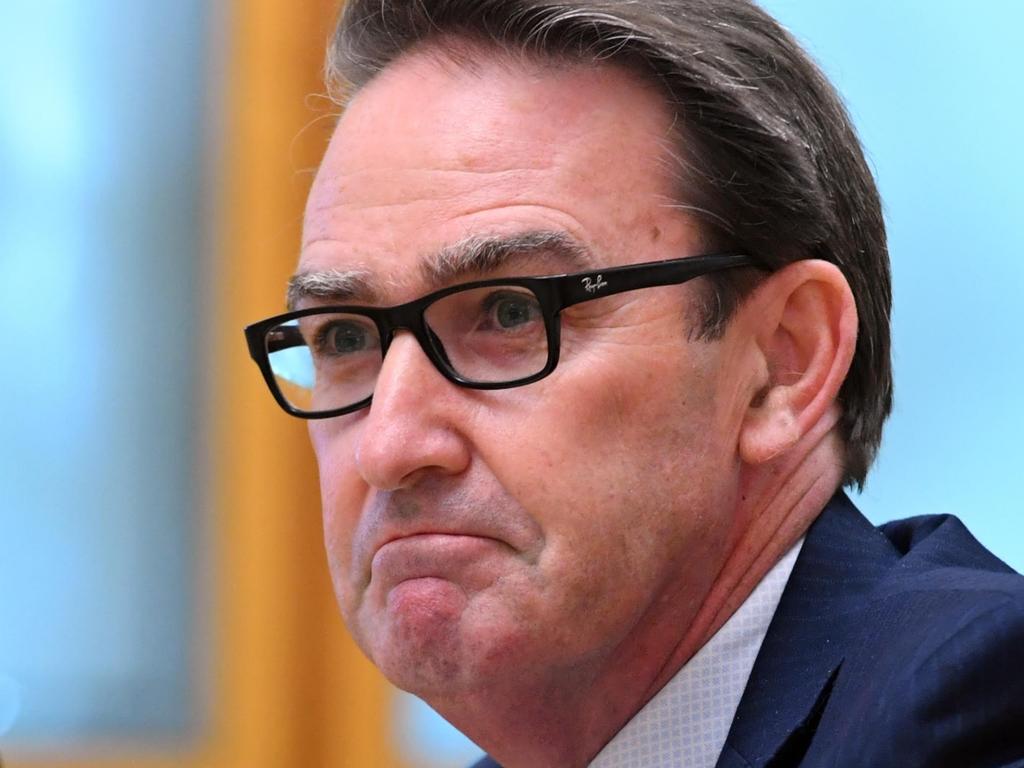Pre-poll cash splurge ‘threat’ to Australia’s economic recovery, says Deloitte
Deloitte has warned against an election cash splash, saying it could set back Australia’s expected economic recovery.
An economic recovery that continues to outpace all expectations, turbocharged by a spike in commodity prices, will drive a $30bn improvement in the budget bottom line for this financial year, Deloitte says.
The underlying cash deficit would come in at $69bn in 2021-22, Deloitte Access Economics partner Chris Richardson estimated in his latest Budget Monitor report – “absent any further goodies”, he said.
Deficits across the four years to 2024-25 would be $87.6bn smaller than Treasury estimated in December’s mid-year budget, including a further $32bn improvement in 2022-23.
Mr Richardson, however, warned against a pre-election cash splash. Structurally higher spending over the longer term would challenge the government’s fiscal strategy, he said, as fiscal settings remained too loose.
Josh Frydenberg on Sunday told Sky News next Tuesday’s budget would reveal “the fiscal dividend from a strong economy”, and debt would peak lower and earlier than previously anticipated. The Treasurer said the budget would include “further measures to alleviate those cost pressures for families”.
“We’re very focused on the structural integrity of the budget and not baking in long-term spending, particularly when it‘s designed for a targeted and temporary purpose, namely to alleviate the immediate cost of living pressures,” he said.
Surging revenues were a major contributor to the better budget numbers, underpinned by soaring prices in key exports such as coal, iron ore and gas in the wake of the Russian invasion of Ukraine.
Mr Richardson noted that commodity prices have boomed this year, even as “Treasury assumed a bust”.
Rather than retreat to $US55 a tonne, as assumed in the mid-year update, iron ore prices are over $US130 a tonne. Thermal coal was at a record $US385 a tonne and metallurgical coal at a similarly historical $US660 a tonne – both multiples of Treasury’s assumptions and more than 50 per cent above the highs of last year.
Of Deloitte’s forecast $30bn improvement in the tax take versus MYEFO for this financial year, more than 60 per cent is down to the impact of higher commodity prices, and more than 40 per cent of the estimated revenue improvement over the forwards.
“We’re not baking into the budget structural spending based on what could be temporary increases in those commodity prices,” Mr Frydenberg said.
But with an estimated $40bn in annual savings that will eventually need to be found by the end of the decade, Mr Richardson warned the Coalition to not fall into the trap of previous governments, who, struggling in the polls, baked in higher spending immediately ahead of elections.
“Australia’s dumbest budget decisions have occurred at times when a government was headed for an election while being way behind in the polls,” he said.
“That’s what saddled Australia with promises of overly large tax cuts made under the then Coalition government in 2007, followed by mostly unfunded spending promises – including the NDIS – under the then Labor government in 2013.”
Mr Richardson said with the economy performing strongly, loose fiscal settings would add pressure on inflation and force the Reserve Bank to hike rates sooner, and potentially lift them higher than otherwise. “Even with Covid costs now much smaller, policy settings are still highly supportive at a time when they no longer need to be,” Mr Richardson said.
He said Treasury’s medium-term outlook underestimated the ballooning cost of running the country, and the rising expense of defending it in an increasingly volatile geopolitical environment.







To join the conversation, please log in. Don't have an account? Register
Join the conversation, you are commenting as Logout